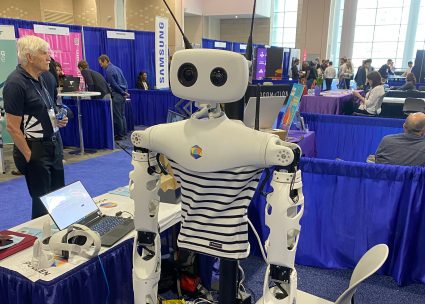
For decades, spacecraft and orbital structures have been constrained by the rocket fairing — if it couldn’t fit inside, it couldn’t fly. That limitation has made in-space assembly slow, complex, and expensive, as seen with the International Space Station, which required dozens of launches and more than $100 billion to complete.
Rendezvous Robotics wants to change that. The startup has emerged from stealth with $3 million in pre-seed funding led by Aurelia Foundry and 8090 Industries, with participation from ATX Venture Partners, Mana Ventures, and angel investors.
The company is commercializing “tesserae” — flat-packed modular tiles that launch in dense stacks and autonomously assemble in orbit using electromagnetic docking. Unlike fixed structures, tesserae can unlatch, rearrange, upgrade, or reconfigure on command, enabling dynamic, scalable space systems.
Founded in late 2024 by Ariel Ekblaw (the inventor of tesserae technology at MIT and founder of Aurelia Institute), Phil Frank (telecom veteran), and Joe Landon (former Lockheed Martin Space R&D lead), the startup is headquartered near Denver. The funding will be used to expand the team and move from demo stage to full-scale orbital deployment.
Rendezvous is initially targeting missions where size drives performance — such as large solar arrays, high-power antenna apertures for communications, and advanced remote sensing systems. Tile prototypes have already flown aboard Blue Origin’s New Shepard and multiple International Space Station missions, where they demonstrated autonomous docking, self-correction, and reconfiguration.
Looking ahead, the company plans a new ISS demo in early 2026, followed by an external ISS mission later that year or in 2027, culminating in its first utility-driven commercial mission.







